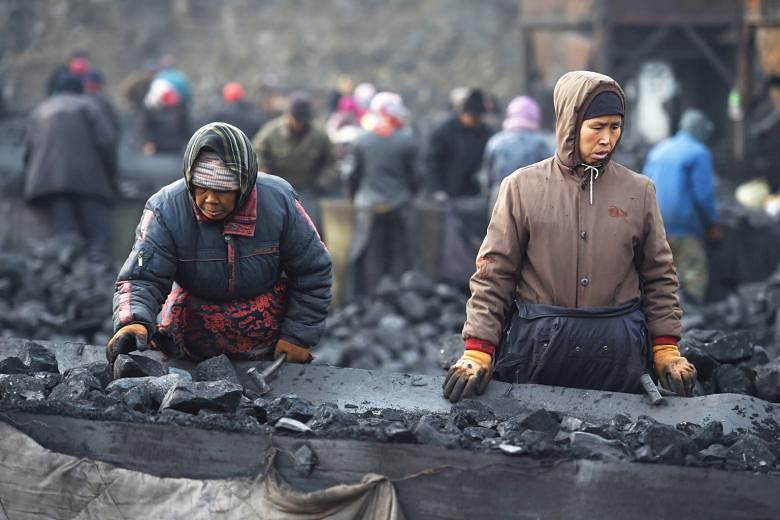BEIJING • China will spend 100 billion yuan (S$21.4 billion) over the next two years to retrain and relocate workers laid off from enterprises ordered to cut industrial overcapacity.
Companies in sectors suffering from overcapacity will also be encouraged to restructure or merge with others to avoid massive layoffs, reported state media, quoting officials from the nation's industry watchdog.
Mr Feng Fei, vice-minister of industry and information technology, said on Thursday the 100 billion yuan fund, set up by the central government, is designed to help laid- off workers get new jobs by offering training and other services, reported China Daily.
China's central government has identified overcapacity and the closure of debt-ridden "zombie" firms as one of its key policy priorities for this year.
The number of zombie companies has increased in China in recent years, reported Global Times.
"It's hard to estimate the scale of zombie companies in China. I would say that in most areas, zombie companies are random cases and wouldn't affect the overall economic situation in those places," Mr Zhong Dajun, director of the Beijing Dajun Institute for Economic Observation, told Global Times on Thursday.
"But in some areas like north China's Shanxi province, where the pillar industry is mired in depression, the issue is more serious and harder to solve," he said.
Global Times quoted Mr Zhong as saying that the fund is meant for companies that are completely broke, or companies whose leaders are entirely irresponsible.
But some Chinese workers remain sceptical. Mr Gao Jianqiang, an instrument technician from a medium-sized steel factory in the inland industrial city of Lanzhou, says he does not pin all his hopes on the government fund.
"There are just too many factories that are not doing well. One hundred billion yuan sounds like a huge sum, but I do not think it will solve problems for everyone," said the 45-year-old.
A China International Capital Corporation report previously estimated that three million workers would be laid off from five industries - including coal, iron and cement - in the next few years if capacity in those areas was to be cut by 30 per cent.
Mr Gao's factory lost 7 billion yuan last year. He said some of his colleagues will be hired by a subway company after Lanzhou city's first underground railway line opens in two years.
Some companies are sending workers to work in better-performing industries, said state media.
For example, Heilongjiang Longmay Mining Holding Group, which operates four major mines, has relocated 22,500 workers to agriculture, timber and public service areas since November.
The Economist newspaper wrote that the roots of today's mess lie in China's response to the financial crisis in 2008. "Officials shovelled money indiscriminately at state firms in infrastructure and heavy industry," it said.

